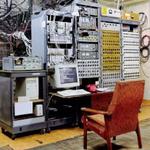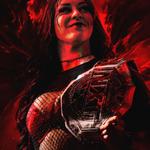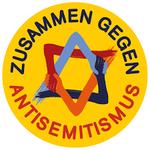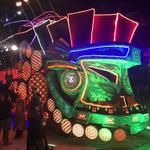 Nemon schrieb:Man hat es ja offensichltich befolgt.
Nemon schrieb:Man hat es ja offensichltich befolgt.
Dass in Dallas offensichtlich gegen das Sicherheitsprotokoll verstoßen wurde, ist doch kalter Kaffee- aber liegt das daran, dass Kennedy das nicht wollte?
Du läufst da in einer Zirkellogik--es gibt offentliche verstöße, die Kennedy verursacht hat, Kennedy muss die Lockerung verursacht haben, deswegen der Verstoß.
Underwood became "an honorary Secret Service agent" and served under Presidents Kennedy and Johnson. While with LBJ, he became the "aide in charge of the Secret Service." The advance man confirmed to this author that JFK did not restrict agents from riding on the Presidential limousine. Underwood told Harrison Livingstone: "There were so many things that fell through in Dallas. Any advance man who had any sense at all would never have taken him down that route." When Livingstone commented that the route was changed, Underwood added: "Yeah, I know. You don't take a guy down a route like that."("High Treason 2", by Harry Livingstone, page 442)
...
- Underwood stated that the CIA, the FBI, and the mafia "knew (JFK) was going to be hit" on 11/22/63 - this information came from his direct contacts with CIA officer Win Scott, the Mexico City Station Chief during Oswald's visit to that region! In addition, Underwood stated that, eighteen hours before Kennedy's murder, "we were getting all sorts of rumors that the President was going to be assassinated in Dallas; there were no if's, and's, or but's about it." When Underwood told JFK about these disturbing reports, the President merely said, "Marty, you worry about me too much" (indeed, JFK told San Antonio Congressman Henry Gonzalez on 11/21/63: "The Secret Service told me that they have taken care of everything. There's nothing to worry about")
http://mcadams.posc.mu.edu/palamara/consp_denials.html (Archiv-Version vom 10.03.2016)Klingt das nach jemandem, der eine Lockerung der Sicherheit wollte?
 Nemon schrieb:Im Übrigen braucht der Präsident selbst keine formale Entscheidungskompetenz hinsichtlich des Sicherheitsprotokolls für Motorcades, um eindrücklich um ein gelockertes Protokoll zu bitten, dem man dann auch nachkam.
Nemon schrieb:Im Übrigen braucht der Präsident selbst keine formale Entscheidungskompetenz hinsichtlich des Sicherheitsprotokolls für Motorcades, um eindrücklich um ein gelockertes Protokoll zu bitten, dem man dann auch nachkam.
Wenn der Präsident nur der Bittsteller ist, liegt die Verantwortung letztendlich beim beim Secret Service. Der müsste dann entscheiden, ob man der Bitte des Präsidenten nachkommen kann.
Interessanterweise entspricht das genau der Aussage, die Clint Hill rausgerutscht ist:
"he can tell you what he wants but that doesn't mean you have to do it. What we always used to do was agree with the president then do what we felt was best anyway."

JFK Secret Service Agent Clint Hill tells the truth about JFK- Kennedy Detail, Mrs Kennedy & Me
Externer Inhalt
Durch das Abspielen werden Daten an Youtube übermittelt und ggf. Cookies gesetzt.
Dann haben wir diesen Punkt geklärt und können sämtliche Behauptungen, JFK hätte die Sicherheitsvorkehrungen in Dallas diktiert, ins Reich der Märchen verweisen. Der Secret Service war folglich für die Sicherheitsmängel in Dallas verantwortlich.
 Nemon schrieb:Und ziemlich offensichtlich war man ebenso darum besorgt, LBJ könnte gleich das nächste Opfer werden ..
Nemon schrieb:Und ziemlich offensichtlich war man ebenso darum besorgt, LBJ könnte gleich das nächste Opfer werden ..
Interessant: Der erste Schuss wird sofort als solcher erkannt, Agent Youngblood wirft sich sofort auf LBJ, Emory Roberts erkennt auch sofort den ersten Schuss als solchen, pfeift aber JFKs Leibwächter, die Anstalten machen, Kennedy zur Hilfe zu eilen, sofort zurück.
Das wirkt irgendwie so. als ob LBJ für den Secret Service gleich beim ersten Schuss die schützenswertere Person gewesen wäre....
Wir haben also geklärt, dass der Secret Service die Verantwortung trug. Hast du irgendwelche Beweise, dass JFK den USSS gebeten hatte, das Sicherheitsprotokoll zu lockern?
Der Secret Service war dafür verantwortlich, dass JFK ohne Verdeck in Dallas fuhr:
Regarding the issue of the bubbletop, although Blaine (on page 188) states that agent Lawson conveyed to Sam Kinney, the driver of the follow-up car, that the bubbletop was to be removed in Dallas, Sam told this reviewer on 10/19/92 and, again, on 3/4/94 and 4/15/94: "It was my fault the top was off [the limousine in Dallas] – I am the sole responsibility of that."42 In addition, Kinney's oft-ignored report dated November 30, 1963 confirms this fact43, as does the former agent's recently-released February 26, 1978 HSCA interview: "... SA Kinney indicated that he felt that his was the responsibility for making the final decision about whether to use the bubble-top."44 Blaine later states, on page 244, that the bubbletop "was meant to shield the passengers from the weather – he [agent Sam Kinney] could count on one hand how many times it had been used," but this is simply untrue on two counts: the bubbletop was often used in nice weather conditions and was used more frequently that Blaine, speaking for the long-deceased Kinney (died 7/21/97), admits
https://kennedysandking.com/john-f-kennedy-reviews/blaine-gerald-the-kennedy-detailWie oben erwähnt gab es bezüglich Dallas Attentatswarnungen- warum sollte man dann auf einmal das Sicherheitsprotokoll lockern.
• Due to Secret Service directives, escort security for the presidential limousine during the Dallas
motorcade “may have been uniquely insecure.”[/u] The day before the Dallas visit, at a meeting with
local police officials to finalize the arrangements for the motorcade, the Secret Service oddly
ordered “a reduction of security of protection in terms of [the] number and placement of [Dallas
police] officers” who would escort the limousine during the motorcade through the city. For
example, the number of police motorcycles accompanying the limousine itself was reduced from
eight to four, and unusually these four motorcyclists were directed not to flank the limousine but
instead to stay behind the limousine’s rear fender. By contrast, when the president motorcaded
through Houston on Nov. 21, his limousine was flanked by six motorcycles.
• “Besides limiting the motorcycle protection, [the Secret Service] prevented the Dallas Police
Department from inserting into the motorcade, behind the Vice-Presidential car, a Dallas Police
Department squad car containing homicide detectives.”
http://digitalcommons.law.uga.edu/cgi/viewcontent.cgi?article=1174&context=fac_pm
Es gab auch in den Tagen davor Warnungen in Chicago, Miami und Tampa.
In March 1963, more than six months before the assassination, the Secret Service received a postcard warning that JFK would be assassinated while riding in a motorcade. This warning resulted in additional protection being furnished the president when he visited Chicago that month. • In October 1963 the Secret Service received reports of one or more plots to shoot JFK with high-power rifles when he motorcaded through Chicago on a visit scheduled for Nov. 2. The visit was cancelled at the last minute. • In the words of the House Assassinations Committee, in planning for the Dallas trip “the Secret Service failed to make appropriate use of the information supplied it by the Chicago threat in early November 1963.”
…
On Monday, Nov. 18, 1963, before his visit later that same day to Miami, President Kennedy motorcaded through Tampa, FL. Prior to the Tampa visit, the Secret Service became concerned that an attempt might be made to assassinate JFK during that visit. The Secret Service’s concerns arose because from unknown sources it became aware of a threat that an unidentified rifleman shooting from a window in a tall building with a high power rifle fitted with a scope might assassinate JFK while the president was being driven through Tampa. (A short news article mentioning the reported plot, “Threats on Kennedy Made Here,” appeared in the The Tampa Tribune newspaper the day after the
Dallas assassination. There is a photograph of the article in Lamar Waldron and Thom Hartmann’s book Ultimate Sacrifice (2005).) The Tampa assassination attempt was thwarted by beefing up escort security for the presidential motorcade; over 600 law enforcement officers protected JFK. It is unclear whether the alleged Tampa plot was separate from or related to the assassination plot Joseph Milteer spoke of.
• The Dallas assassination can never again be viewed in isolation. It must be viewed in the context of the various Chicago, Miami, and Tampa plots against the president reported in the months before the assassination. We now know that the Dallas assassination occurred against a background of several recent plots to shoot JFK, plots the Secret Service was fully aware of. The ghastly truth appears to be that, as David Talbot writes in his book Brothers: The Hidden History of the Kennedy Years (2007), “Kennedy was, in fact, being methodically stalked in the final weeks of his life… In the final month of his life, John Kennedy seemed a marked man, encircled by a tightening knot of treachery.”
https://digitalcommons.law.uga.edu/cgi/viewcontent.cgi?referer=&httpsredir=1&article=1174&context=fac_pmWarum wurden in Dallas trotz der Gefahrenlage keine Agenten auf den Dächern postiert?
SAIC of the Nashville office Paul Doster told the Nashville Banner back on May 18, 1963 that "a complete check of the entire motorcade route" was done for JFK's trip to Nashville. In addition, Doster stated: "Other [police] officers were assigned atop the municipal terminal and other buildings along the route. These men took their posts at 8 a.m. and remained at their rooftop stations until the president and his party passed." The roofs of buildings were also guarded on November 18, 196378, four short days before Dallas, in addition to San Antonio on November 21, 196379, just the day before, as well as in Fort Worth on the morning of the assassination.80
https://kennedysandking.com/john-f-kennedy-reviews/blaine-gerald-the-kennedy-detail
Warum wurde in Dallas trotz der Warnungen eine Route mit 90-Grad- bzw. 120-Grad-Kurven geplant, die die Limousine verlangsamen würde?
Im Übrigen waren wir eben noch in der Notaufnahme, jetzt reklamierst du auf einmal für dich dei Methode des Abarbeitens. Und verzweigst das Ganze wieder auf x Nebenschauplätze inkl. LBJ.
Das stimmt so nicht- zuerst waren Secret Service und LBJ das Thema, dann kam sunlay mit der Notaufnahme
 Nemon schrieb:Das tut er in erster Linie mal selbst, q. e. d.
Nemon schrieb:Das tut er in erster Linie mal selbst, q. e. d.
Inwiefern? Und wenn ja, ändert das was an seinen Recherchen?
@Nemon @Nikto @sunlay Dr. Perry machte einen Tag nach den Geschehnissen eine Aussagen gegenüber einem TV-Sender. Er spricht von einer großen Kopfwunde hinten rechts.

DR. MALCOLM PERRY TV INTERVIEW
Externer Inhalt
Durch das Abspielen werden Daten an Youtube übermittelt und ggf. Cookies gesetzt.










